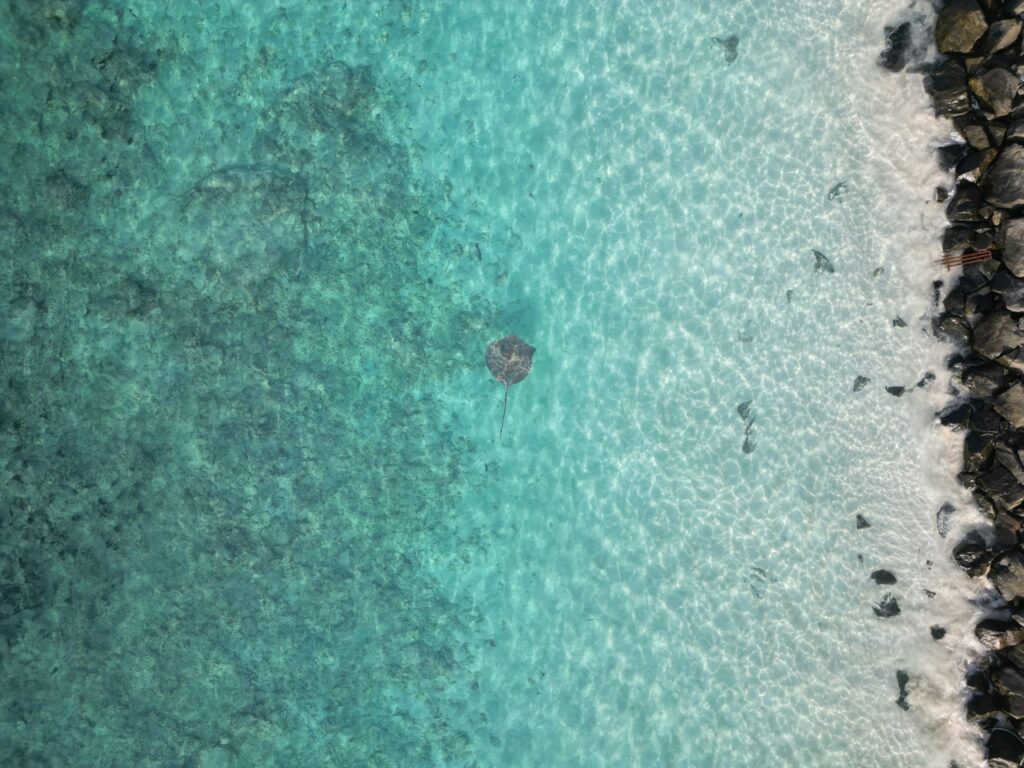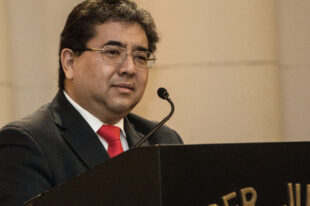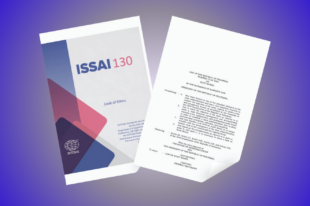Small Island Developing States and Climate Challenges: Perspectives from the INTOSAI WGEA, PASAI and the Maldives
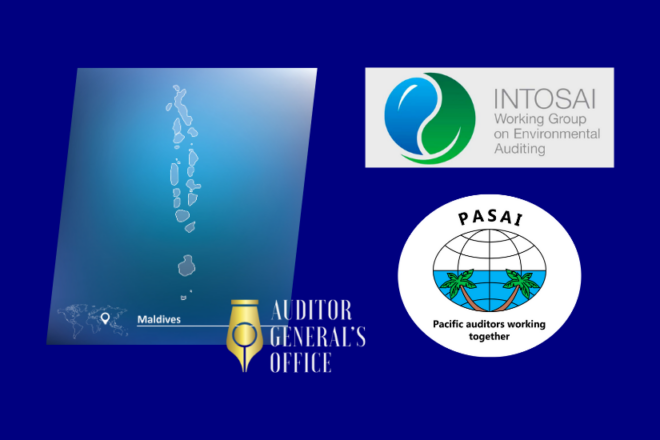
Authors: Dr. Vivi Niemenma (INTOSAI WGEA Secretariat, SAI Finland), Jonathan Keate (PASAI RWGEA Secretariate, SAI New Zealand), Mohamed Ibrahim Jaleel (SAI Maldives)
Reviewer: Rauhath Hussain (SAI Maldives)
Small Island Developing States (SIDS) are in the forefront of climate change facing the impacts first. This article sheds light on the INTOSAI Working Group on Environmental Auditing (WGEA) activities in the area, the challenges in the PASAI WGEA regions, as well as special challenges from one of the most low-lying nations in the world, the Maldives.
INTOSAI Working Group on Environmental Auditing (WGEA) and Climate Resilience
The impacts of climate change, such as sea level rise and extreme weather events with storms and floods, are experienced first in SIDS. Another side of so-called dual injustice is the fact that SIDS are the least responsible for fossil fuel emissions warming the atmosphere.
INTOSAI Working Group on Environmental Auditing (WGEA) adopted climate resilience and the challenges of SIDS as the main topic of its 21st Assembly in July 2022. The meeting hosted by SAI Maldives, at a windy season, allowed participants to experience and understand the challenges concretely.
A publication on the main outcomes of the Assembly, with several audit cases on audits of climate change adaptation and resilience, is available on WGEA website. Based on the call for audit cases, SAIs have globally audited particularly water related issues, both draughts and floods which are both foreseen to increase in the future. As for other topics, SAIs have audited adaptation and resilience cross-cuttingly across the government sectors, and for example, in agriculture and infrastructure sector.
The publication includes following recommendations for SAIs:
- Remind of the significant risks that climate change poses to public sector budgets.
- Examine the risk assessments of governments.
- Call for long-term considerations.
- Stress that good data and monitoring serves more informed decision-making.
- Examine whether governments work across sectors and enhance policy coherence.
- Help governments pay attention to inequalities both nationally as well as globally in the spirit of the 2030 Agenda and “leaving no one behind”.
Pacific Association of Supreme Audit Institutions (PASAI) Cooperative Audit on Climate Change Adaptation (2013)
In 2013, ten audit offices in the Pacific took part in an audit on climate change adaptation and disaster risk recovery. The audit was the fourth in a series of cooperative environmental audits for the region, as part of a programme to build performance audit capability for Pacific SAIs.
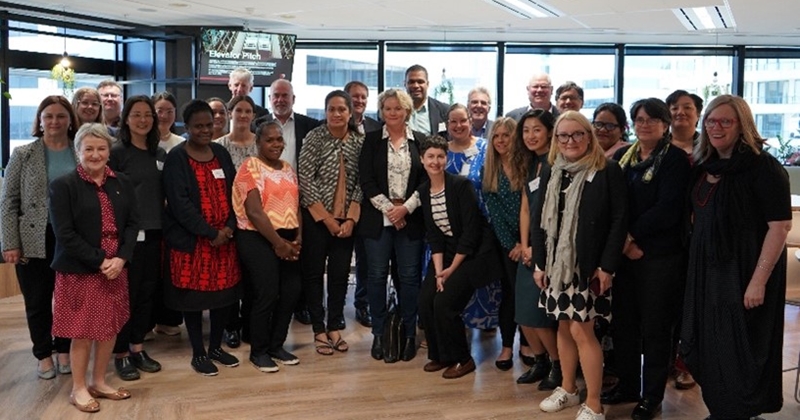
The focus of the audit was climate change adaptation and recovering from natural disasters, rather than reducing greenhouse gas emissions. Climate change adaptation is the more pressing issue for the Pacific region. Rising sea levels, cyclones, tsunamis, food security, and coastal erosion are real and daily threats and extreme weather events are expected to become more intense and more frequent.
Many of the Pacific countries consist of a series of islands, some of which are very small and low lying. It is harder to adapt to climate change with limited land or resources, such as higher ground to retreat to or other areas of land for changing land use or growing different crops. In the Pacific, even a small change in climate can have a significant effect.
SAIs from eight Pacific Island states participated in the audit, with good representation from the three main Pacific regions – Micronesia, Melanesia and Polynesia.
The broad audit topic was to assess the effectiveness of climate change adaptation and disaster risk reduction strategies, plans and financing in each participating county. However, because different regions of the Pacific have different vulnerabilities to climate change effects and severe weather events, the SAIs developed audit objectives and lines of enquiry relevant to their specific jurisdiction.
This resulted in audit topics clustered around three main themes:
- preparing for climate change – focusing on plans and strategies, vulnerability assessments, and coordination between responsible agencies;
- managing actual effects of climate change for example, coastal erosion; and
- managing the impact of climate change on food security.
A regional report on the audit had thirteen findings, all of which were fairly negative. For example:
- legal and policy frameworks were fragmented and insufficient to guide adaptation measures;
- project level governance was weak and project management skills needed improvement;
- project monitoring arrangements were underdeveloped, with limited ability for Pacific Island states to report progress against climate adaptation priorities.
The overall audit conclusion was that the Pacific Island states audited were not well placed to respond effectively to the threats and challenges arising from climate change. A regional overview report set out the more detailed findings from the audits.
On the topic of climate finance, the report noted that the financing of adaptation measures in the Pacific was vexed. While international funds were available through various global agencies, at the time of the audit, the individual Pacific Island states audited generally lacked the capacity to access and appropriately manage these funds through their national public financial management systems.
This is an important point when considering the topic of climate finance. The sentiment of transferring funds from developed to developing countries is worthy, but there is also a need to ensure the right systems are in place for countries to access the funding and to properly manage and spend the funds once received. This can help to ensure related benefits from climate finance are realised, such as building capacity in the areas of project management, monitoring and evaluation, and reporting for the use of funds.
The audits were undertaken 10 years ago. It is encouraging to note that eight Pacific SAIs are currently taking part in the INTOSAI Development Initiative (IDI)/WGEA global climate change audit. This will be a good test of progress since the last audits.
The Case of Maldives
The Maldives being one of the low-lying small island developing states, the country is at the forefront of climate risks. Given the trajectory of global warming, melting polar ice caps and the consequent sea level rise, the impact of climate change is an existential threat to a nation where 80% of its land is less than one meter above the sea level. The recorded data from the Maldives Meterological Office from 1989 to 2021 shows an annual rise in sea level of 4.24 mm in the central region and 3.44mm in the southern region. However, the ultimatum of complete submergence due to sea level rise is not the only concern the islanders have regarding the drastic changes, but the escalated impacts which they have been experiencing in their day to day lives.
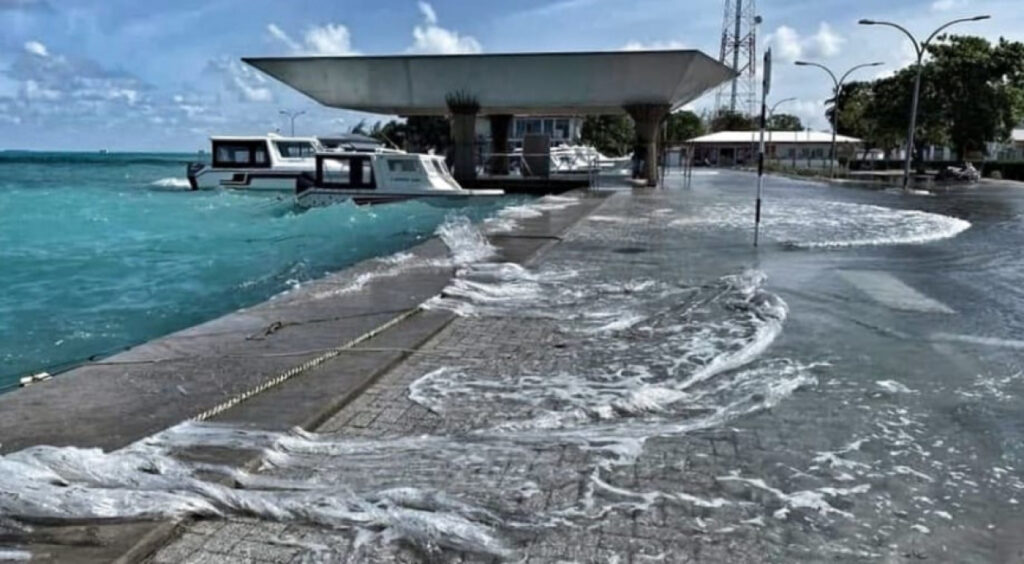
Many inhibited islands across the Maldives face the reality of erosion, land loss and damage to households and other critical infrastructure such as the schools, utility infrastructure, that are located close to shore. The risks are aggravated by sea level rise and extreme weather events. Given the smaller landmass of the islands and the limited topographical variability, the risk of impact is significantly high on most of the built environment in the islands. Further to the varying damages to the households near to the shoreline from erosion, the increase of sea level rise puts these households at risk of further damage from extreme weather events such as storm surges.
In the absence of surface water, Maldivians traditionally have been reliant on rainwater for potable needs and groundwater for non-potable needs. However, availability of both of these natural sources are being influenced by climatic variations combined with anthroprogenic activities. Change in rainfall patterns and extended dry seasons impedes the ability to harvest rainwater to last through to the rainy periods and the thin superficial groundwater lenses are being salinised by sea level rise, storm surges and over-exploitation. In addition to these sectors, the Maldives second national communications highlight critical impact to coral reefs, food security, human health, tourism and fisheries from climate change.
From the stated key vulnerable sectors of the nation, SAI Maldives has been able to conduct several audits on the adaptation actions of the sectors such as the audit on; coastal erosion management, dry period water supply, establishment of water and sewerage infrastructure and audits on agriculture and fisheries diversification programs.
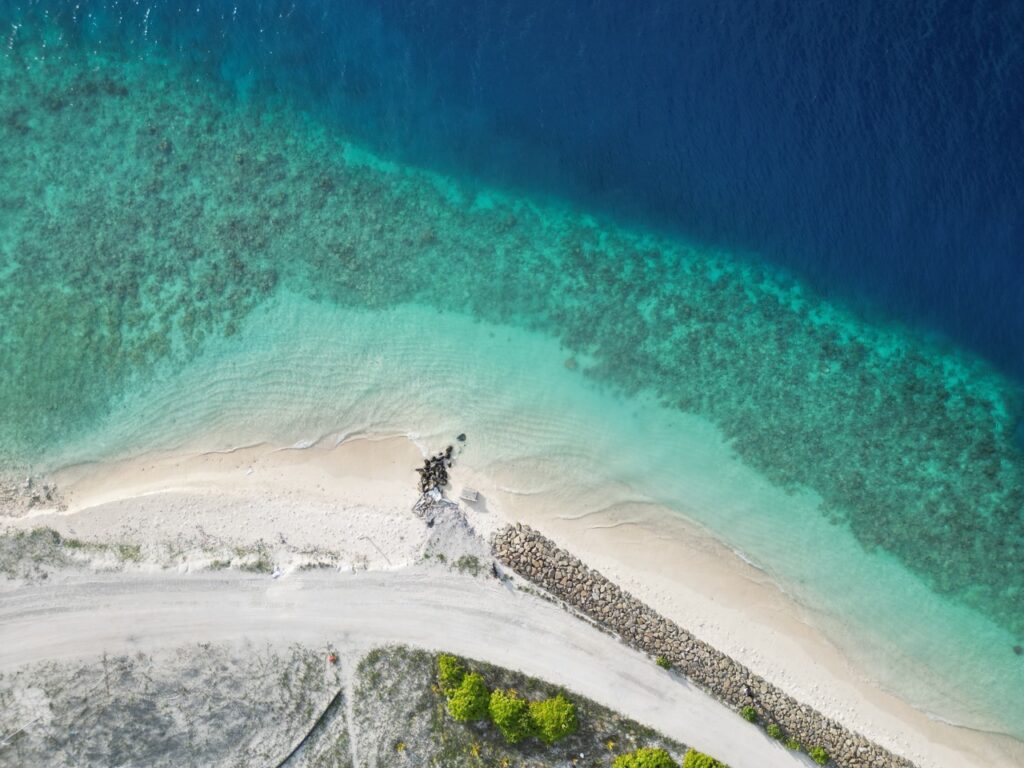
The audits have identified key areas that the Maldives have to improve in order to implement effective and efficient adaptation measures. First is the delay in the intervention programs, these are mainly owing to lack of national financing and the inability to access and mobilise the international financial resources. From the discussions of the last WGEA assembly, one of the reasons that hinder the access for climate finance is the absence of long term data and being asked for data which does not exist in the SIDs. This is consistent with the audit findings as one of the areas to improve are risk monitoring. The need for improved project management and quality control measures were also identified, similar to PASAI findings. The audit recommendations emphasised ensuring the sustainability of project outputs and implementing proper exit strategies to infuse the project deliverables with the day to day operations of the government. Other areas of improvement include technical capacity building, awareness, priority setting, project design and stakeholder engagement.
In conclusion, climate change is an ever-present reality for the SIDs countries. SIDs have difficulty in accessing international climate finance for timely intervention of adaptation actions and innovative mechanisms are required to mobilise these resources and enhanced capacity is essential to properly manage the finance in the national context. Lastly, SIDs SAIs are calling for effective adaptation actions as it is of utmost importance to ensure that every adaptation action counts as a beneficial step in protecting our communities.
